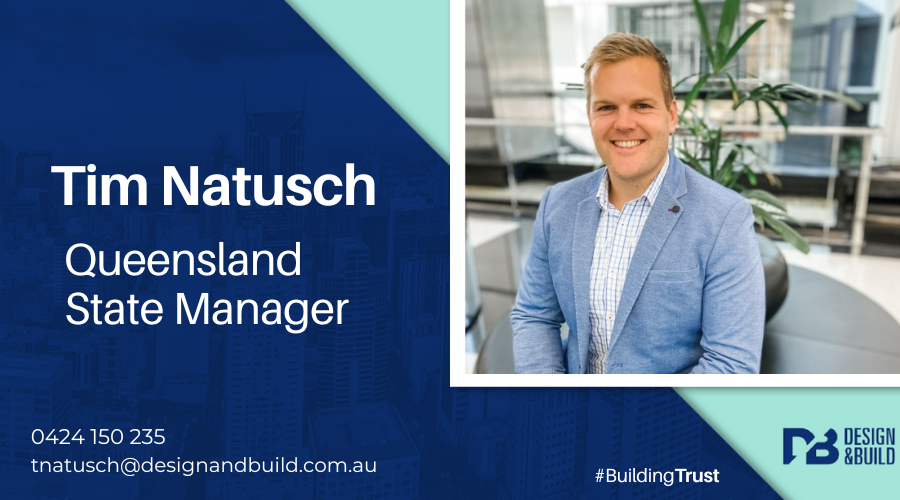Career progression: tips on moving up the corporate ladder
11 months ago By Emily Harris

Within our professional lives, it’s a given that the majority of people want to advance their career. Advancement can mean different things to different people; gaining a promotion, developing new skills, receiving more responsibility and within the Built Environment Industry, exposure to significant projects. However, while we might have set goals in mind for where we want our careers to end up, the route to achieving these goals isn’t always clear-cut. While we might have our sights set on becoming a project manager for example, what are the definitive steps we need to take to reach this goal? And once you’ve started your dream job, where do you go from there? How can you get the most out of your role throughout your working life and how can you maximise your potential?
Sometimes career progression is easy, with the route logical and the steps distinct and attainable. Other times, career advancement seems difficult, and you can feel like you’ve plateaued and no longer have a clear path to follow. Wherever you are in your journey, Design & Build has collated the following steps to help you map out a plan, if you’re feeling lost within your current job and are unsure what your next move should be.
Plan & Identify Goals
In order to develop and grow your career, you firstly need to have a strong sense of direction; what do you want to achieve and how can you utilise your skills and interests? Being able to effectively develop your career involves a lot of initial planning to increase your chances of securing your career goals.
Setting and planning career goals can be a different process depending on the individual, however, the first step is establishing what you want, which can sometimes be easier said than done. If you don’t have a clear idea of your ideal job or role, career advisors recommend to firstly list the skills or activities you enjoy or are good at in your current role and then determine if you can group these skills as a legitimate career prospect. For example, perhaps you have experience and studied in Marketing and Office Management but have also developed an interest in working web design/programming. Once you’ve outlined the skills you possess and the aspects of your role you enjoy, you can then set yourself goals on how to integrate these skills and interests into your work life. Goal setting is important as it instils a sense of purpose and can provide clear targets you can work towards. However, when setting goals it’s important to ensure they are feasible; if you’re a Graphic Designer setting a goal to become a world-famous actor isn't very realistic. When setting yourself goals, you need to ensure they are SMART; that they are specific, measurable (or quantifiable), attainable, realistic, and time-based to give yourself the best chance of achieving them. For example, a better goal for a graphic designer who’s interested in web programming, might be to work on their company’s website re-design and a SMART goal they set themselves is to be included or nominated to join the company website re-design team for the duration of the project, maybe 6 to 12 months.
Once you’ve established your key goals you can then determine the steps you’ll need to take to achieve them. You should ask yourself the following questions: are there opportunities in your current role in which you can achieve these goals? Could you work towards a promotion where you could achieve these goals? Or would achieving these goals require moving to a different company? Furthermore, it’s important to consider if there are any current skill or knowledge gaps that could prohibit you from achieving your role, like management experience for example. Or experience in particular software. Are there courses or programmes you can undertake to bridge these skill gaps?
Advancing Your Skill Set
Once setting yourself SMART career goals, you can start taking steps to achieve them. The first relates to learning and development. Within a professional context, your skill set is a collection of abilities (both technical and behavioural) that help you to perform particular tasks and each job you take will require particular skill sets, depending on the job itself. Someone who works in Structural Engineering will need to be proficient in conducting site inspections and construction methodology, for example. There are also particular skills that are transferrable; they are considered necessary for every job, no matter the industry. Skills like good communication, critical or analytical thinking and creativity are considered beneficial to any job and consequently being in possession of such skills puts an employee at a great advantage, as they can utilise these skills if they ever choose to move departments, change industries or apply for a new role.
When reassessing your options, or looking for a change, taking stock of your skill set is an important step. If you’ve set yourself a particular career goal that requires certain skills that you need to develop further (for example, if you’re wanting to step into a more client-facing role or become more involved in project management you might need to develop your stakeholder management skills) than working to develop these skills will play a big part in achieving your goal.
Even if you don’t have a specific career goal in mind, top performers are always learning and building on their skills and knowledge. Expanding your skill set, can only make you a better worker and provide opportunities for you to expand your career in the future. So, if you’re feeling stagnant or bored within your current job, looking at ways to advance your skillset can be a great option. Ask your manager or HR department if there are any formal training programs that are offered within the company that you could take part in, or if they’d be willing to sponsor you in external training or workshops.
Depending on their budget, companies can be quite willing to support an employee’s learning goals, especially if there’s a strong business case for that employee to acquire new skills and knowledge. Otherwise, if your organisation is unable to support your learning & development with formal training, there are also numerous online courses that you can enrol in.
Ask For Feedback
While developing your skillset, it’s also beneficial to seek feedback from those who work directly with you, on your performance. If vying for an internal promotion or pay rise, it will often be the people you work for directly- perhaps a manager or supervisor- that will be involved in the decision or vouching for you, so it’s important to know what they think of your work, if you have what it takes and if there is room for improvement. Getting an outside perspective on your skill gaps - any gaps in the skills that you possess, and the skills required to do a certain job- is also crucial, as these can be a blind spot when having to determine them ourselves, while an outsider can provide a much more objective viewpoint.
By taking the feedback of your subordinates, colleagues and managers on board not only are you demonstrating that you value their feedback and can actively listen and take direction well, but you’re also able to develop and adjust your skill set further, strengthening your case when you next apply for a new role or promotion or even asking for more work responsibility.
In some companies, feedback is routinely given once or twice a year when an employee has their six-month or annual performance review. However, if you’re seeking advice or guidance, there’s nothing stopping you from starting the conversation. After a presentation or after you finish a big project, ask your manager or boss how they thought it went and if there’s anything that could be improved. Try to keep an open mind and take what they’re saying on board. Ask them to provide examples of how things can be done differently in future, so you know what can be done for next time and what can help enhance your abilities even further.
When To Move On
Knowing when both yourself and a company have come to the end of your journey isn’t always the easiest thing to identify. But rather than staying comfortable and stagnant in the same place for years, the best solution to develop your career is to move on and seek new prospects outside of the company. If you’re experiencing the following, HR professionals recommend starting to look for new opportunities:
Being too comfortable – If you find yourself mindlessly going through the motions at work rather than being engaged in what you’re doing, it’s a sign that you need a change. If you’re not being challenged at work you will eventually get bored and won’t be inspired, which then negatively impacts on you producing your best work.
Lack of opportunity- You’re committing the majority of hours Monday through Friday to a job, so it’s not worth investing the time into a company that doesn’t have the ability to invest in you. If you feel you’ve exhausted all of your opportunities to progress within your company or you’ve consistently gone for promotions, after seeking and following the advice and feedback from your managers and haven’t been successful, it might be time to move on.
Furthermore, if you’ve made it known to both your managers and HR team that you’d like to develop your skills or looking to progress within the organisation, and haven’t received any advice or offers for professional development, it suggests that this isn’t something the company really values. Thus, if you’re wanting to develop your career further, it’s best to do so outside the organisation.
Negative Experiences - If you find yourself no longer enjoying your work for whatever reason; you’re not being challenged, you’re not receiving the recognition you feel you deserve, or the organisational culture doesn’t value learning or support the needs of its employees. Whatever the reason, if you suddenly find you’re dreading Monday morning every Sunday evening, it’s a clear sign that the particular job is no longer working for you. No job is worth your ultimate unhappiness.
If any of the above resonates with you, it could be time to seriously consider looking for new opportunities. Before making a formal announcement and giving your notice, it’s worth exploring the job market and reaching out to recruiters, to properly evaluate what else is out there and if there are options that will be a better fit for you. By reaching out to a recruiter, especially one that works within your industry, you can gain up-to-date market advice on the types of roles that are available, what would be suited to you and perhaps receive some ideas of roles you previously hadn’t considered. Establishing external opportunities before you make any ‘official’ moves at your current place of employment will help you feel more prepared in your future job search and expose you to more fulfilling and satisfying careers.
If you’re looking to develop your career or new opportunities within the Built Environment Industry (Construction, Engineering, Property, Interior Design) and are interested in getting some real-world advice don’t hesitate in reaching out to our specialised consultants.
Contact us here: info@designandbuild.com.au












